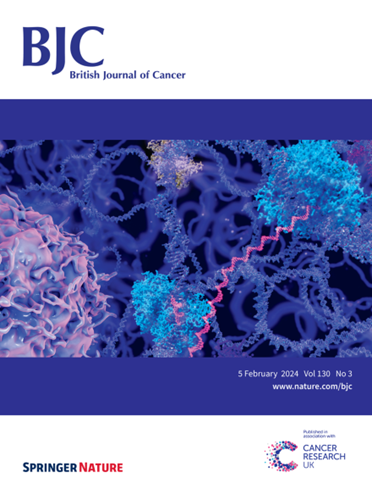A histopathology-based artificial intelligence system assisting the screening of genetic alteration in intrahepatic cholangiocarcinoma
IF 6.8
1区 医学
Q1 ONCOLOGY
引用次数: 0
Abstract
Targeted therapy for intrahepatic cholangiocarcinoma (ICC) shows superior survival outcomes but patients with certain targetable alterations are no more than 20%. Genetic alteration screening for all ICC patients is of high cost and not routinely performed. This study intends to develop a histopathology-based artificial intelligence (AI)-assisted system for predicting genetic alteration of ICC. We constructed a Genetic Alteration Prediction (GAP) system based on multi-instance learning and self-supervised learning to predict genetic alterations using whole-slide images (WSIs) of H&E-stained slides. A total of 2069 WSIs from 232 ICC patients underwent surgery of the FAH-SYSU dataset were used for model construction and adjustment by five-fold cross-validation. Another 150 patients from three medical centres were used as independent external validations. We also compared the cost-effectiveness of GAP-assisted precise treatment and all-sequencing strategy to non-sequencing strategy. The GAP was able to predict actionable genetic alterations of ICC, including FGFR2 and IDH. The area under the receiver operating characteristic curves (AUC) for FGFR2 and IDH were 0.754 and 0.713 in the internal dataset, and 0.724 and 0.656 in the external dataset, respectively. Furthermore, compared to giving chemotherapy without sequencing for every patient, GAP-assisted precise treatment could increase 1 progression-free quality-adjusted life month with a cost of $13871.72, the co-responding figure for all-sequencing strategy is $44538.93. Decision curve analysis showed that AI-assisted strategy provides better clinical benefits. We constructed an AI-assisted genetic alteration screening system which is predictable to ICC actionable targets and has potential to assist precise targeted treatment of advanced ICC.

基于组织病理学的人工智能系统协助筛选肝内胆管癌的基因改变。
背景:肝内胆管癌(ICC)的靶向治疗显示出优越的生存结果,但某些靶向改变的患者不超过20%。对所有ICC患者进行基因改变筛查费用高,而且不经常进行。本研究旨在开发一种基于组织病理学的人工智能(AI)辅助系统来预测ICC的遗传改变。方法:构建基于多实例学习和自监督学习的遗传改变预测(GAP)系统,利用h&e染色载玻片的全片图像(WSIs)预测遗传改变。在FAH-SYSU数据集中,来自232例接受手术的ICC患者的2069例wsi通过五倍交叉验证进行模型构建和调整。来自三个医疗中心的另外150名患者被用作独立的外部验证。我们还比较了gap辅助精确治疗和全测序策略与非测序策略的成本效益。结果:GAP能够预测ICC可操作的遗传改变,包括FGFR2和IDH。FGFR2和IDH的受试者工作特征曲线下面积(AUC)在内部数据集中分别为0.754和0.713,在外部数据集中分别为0.724和0.656。此外,与每位患者进行化疗而不进行测序相比,gap辅助精确治疗可增加1个无进展质量调整生命月,成本为13871.72美元,而全测序策略的共同响应数字为44538.93美元。决策曲线分析表明,人工智能辅助策略具有更好的临床效益。结论:我们构建了一个人工智能辅助的基因改变筛查系统,该系统可预测ICC的可操作靶点,并有可能帮助精确靶向治疗晚期ICC。
本文章由计算机程序翻译,如有差异,请以英文原文为准。
求助全文
约1分钟内获得全文
求助全文
来源期刊

British Journal of Cancer
医学-肿瘤学
CiteScore
15.10
自引率
1.10%
发文量
383
审稿时长
6 months
期刊介绍:
The British Journal of Cancer is one of the most-cited general cancer journals, publishing significant advances in translational and clinical cancer research.It also publishes high-quality reviews and thought-provoking comment on all aspects of cancer prevention,diagnosis and treatment.
 求助内容:
求助内容: 应助结果提醒方式:
应助结果提醒方式:


